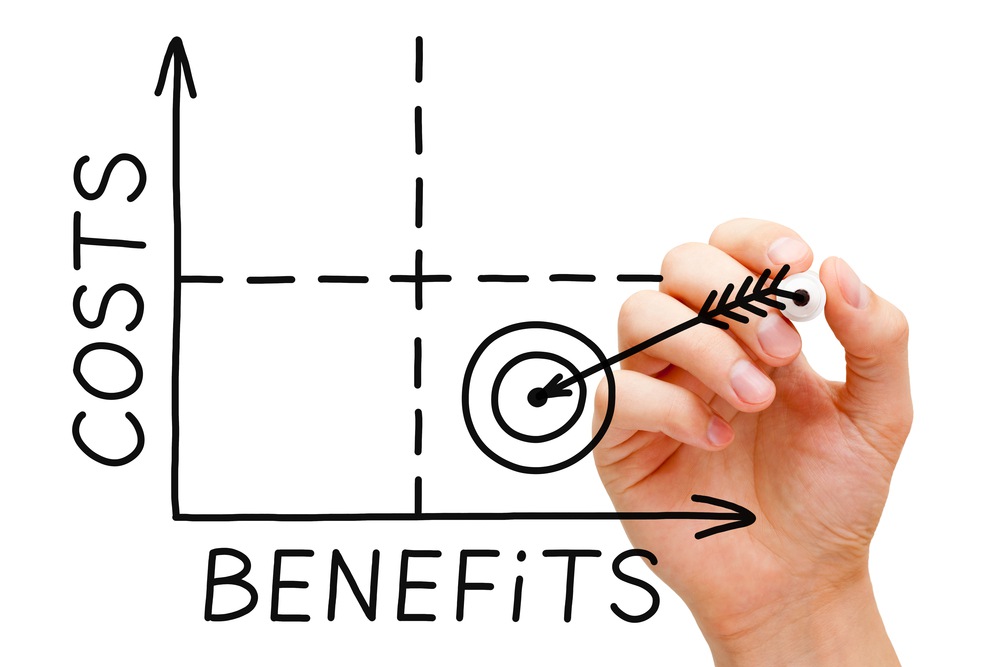Many people question the value of social media. Is there a quantifiable ROI? Can you measure a clear return on investment, as you can with Adwords or to some extent, Google Organic? I asked this question to Social Media Expert Brent Csutoras, who explains why social media DEFINITELY has ROI. If you, like many others, are struggling to quantify Social Media and understand its place in your digital marketing strategy, this article is for you.
It’s not about size, but how you measure it.
People often ask social media marketers if they can guarantee something quantifiable like 10,000 visitors a month as a result of their investment in social media. Or they wonder if they will see an increase in sales and to what extent. They want definitive metrics to track their social media spend.
As with many other marketing models, the answer varies and is impacted by many different factors. Social Media is not different from other marketing models, it just has to be measured differently. When you talk about social media the conversation immediately has to include branding, Key Performance Indicators (KPI’s), attribution models, and the varying stages of the sales funnel.
Let’s start the discussion with traffic as a KPI. How much traffic a social media campaign drives depends on the quality of the content being promoted, the subject, and the target audience, among many other factors. There is a controlled baseline that you strive for but every single campaign has different elements to consider.
When you run a campaign, you may see a million visitors or five thousand. But if those five thousand visitors are hyper targeted you will likely get more value than the million untargeted visitors. It’s all relative to goals and what each KPI measures.
Next, let’s talk about sales in regards to Social ROI. Think of the analogy of creating a TV commercial. When you hire an advertising firm, you don’t say, “If I give you $5,000 dollars, am I going to get $30,000 dollars in sales?” The advertising firm would look at you and say, “We’ve been doing commercials for 50 years. This is what we typically see when we run a commercial.” They base it on industry standards, what they’ve learned works, and what quantifiable research has shown – including experimentation and testing.
Look at Different KPI’s Based on Goals
It’s important to reframe the dialogue. Traffic is one of the primary signals of value, but not the only one. There are many other signals that are generated as part of a social media campaigns:
-
Social Conversions
-
Leads from Social
-
Share of Voice
-
Improved Sentiment
-
Higher Authority
-
Branding Touch-points
The Impact of Social on Search
Many people are interested in ranking well in Google organic. Improved rankings in Google organic can be used as a measurement of social media value. At several conferences, Google’s Matt Cutts has publicly stated that they are definitely, 100% looking to go for social signals as a clear indicator of authority. Most online marketers know that Bing is already using social signals as part of their ranking algorithm (through a contract with Facebook).
Google has stated that when they’re looking at a site and trying to determine whether to apply a penalty or not, they’ll look at social signals or social activity as a determining factor. All of these have to be considered in the Social ROI discourse.
When people engage in link building for SEO, the ultimate goal is visibility in Google organic (as well as direct referral traffic). When you talk about SEO, the core value of SEO is visibility. While links are the vehicle, the goal is Organic rankings. In a Social Media model, visibility is the vehicle and the goal is branding, audience growth, social signals for organic, and sales.
The Impact of Social Media on Buying Decisions
We’ve established there are different ways to measure social metrics based on goals. Next, let’s discuss the effects of social media on the sales funnel. We know that people make buying decisions based on recommendations from friends. Study after study shows that social validation IS influencing people’s buying decisions. Some 81% of people are looking for recommendations before buying.
Take a step back and look at marketing as a discipline. When you’re marketing online, what are you trying to accomplish? You want to reach people who have never heard of your brand, present them your products, and try to get them to buy what you’re selling. These days, social media has become a critical component in the equation. Social Media creates online networks of trust that direct consumer spending.
If you’re interested in a vacuum cleaner, you may not go to Google to search for “best vacuum cleaner”. Instead you might go to Facebook or Google Plus and ask your social peeps to recommend their favorite vacuum cleaner, and why they love it. Based on their reviews and recommendations, you do your own research and in the end, choose the product that came with the highest recommendation from someone you know and trust.
People are relying on their social networks to make decisions about everything! From what book to read next to what divorce lawyer to hire, social media heavily influences decisions. This is undeniably the future, as Gen Y grows up and connectivity increases with mobile and wearable devices.
Ask the Right Questions
The question is no longer, “Does social media have an ROI?” The question now is, “How do I make sure I get ROI out of my social media, and most importantly, how do I measure that ROI? How do I build successful social strategies that maximize my investment in Social Media?”
Every single business, campaign, and initiative will have different Goals, KPI’s, and ways of measuring. What is the correlation between a like and a sale? What is the lifetime cost and value of a customer, and how do attribution models affect this?
The only way to answer these questions is by creating a campaign, identifying goals, and creating KPI’s related to those goals. Then you test, evaluate, and refine your strategy. It’s a learning process and the only way you’ll learn is to test.
Establish Measurable Goals
There are many different ways to track. Use tracking URLs and evaluate: how many people came to my site from Facebook? How many converted into sales? What was their time on site? How many pages did they see before leaving? Do I see a large number of return visitors from Facebook? Twitter? You can use Google analytics, platform-specific analytics, or 3rd party tracking tools like TailWind App for Pinterest to measure different KPI’s.
Visibility means everything, regardless of what tactic you pursue. Organic SEO, Social Media, Paid Search, Paid Social – all these increase visibility which leads to the growth of an audience that you can eventually convert into sales.
Are you still debating whether to use social media? It is time to stop debating and start doing, or your brand will be left behind. Start figuring out HOW to do Social the best possible way to maximize results. As your community grows and marketing platforms evolve, you’ll be grateful for the audience you built around your products and services.
Featured Image Credit: Shutterstock. Used under license




